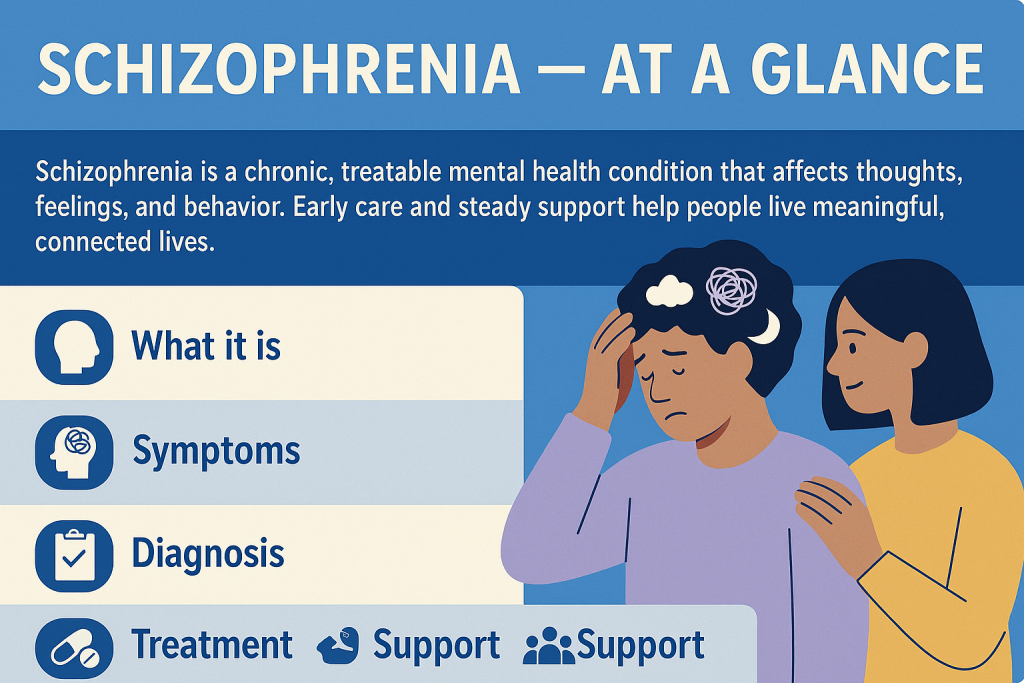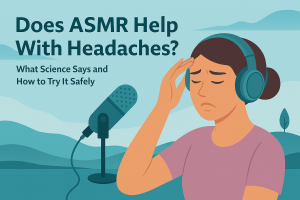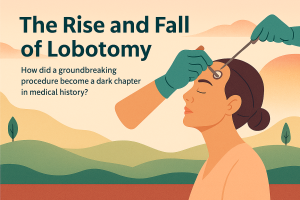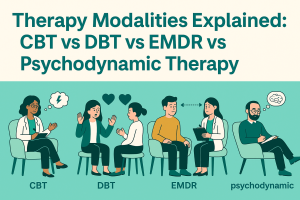Schizophrenia is a chronic mental health condition that affects how a person thinks, feels, and behaves. It can include symptoms such as delusions and hallucinations, and it often begins in the late teens to early 30s. While misconceptions and stigma are common, effective treatments and supports exist. This guide explains symptoms, causes, diagnosis, treatment options, day-to-day management, complications, and how to get help for yourself or someone you love—in clear, practical language.
Key Takeaways
- Schizophrenia is treatable. With the right combination of medication, psychotherapy, skills training, social support, and lifestyle routines, many people live meaningful lives. If you’re exploring skills-based care, see our primer on CBT therapy in NYC.
- Symptoms are commonly grouped as positive (e.g., hallucinations), negative (e.g., reduced motivation/emotional expression), and cognitive (e.g., attention/memory difficulties). When emotions feel flat or hard to read, learn about alexithymia and ways to build awareness.
- Early evaluation helps: if you notice early warning signs (withdrawal, odd beliefs, disorganized speech), seek assessment from a licensed professional.
- Relapse prevention involves medication adherence, stress management, sleep, substance-use avoidance, and a crisis plan shared with trusted supporters. If sleep is the weak link, try our guides on CBT-I sleep restriction and ASMR for insomnia.
- Families and friends can help by learning about schizophrenia, using calm, supportive communication, and partnering with care teams. If trauma is part of the picture, see our explainer on EMDR for childhood trauma and PTSD treatment in NYC.
Symptoms of Schizophrenia
Symptoms vary by person and can change over time. Many clinicians describe three broad categories:
| Category | Examples | How it can look day-to-day |
|---|---|---|
| Positive (added experiences) | Delusions, hallucinations, disorganized speech, markedly disorganized behavior, catatonia | Hearing voices others do not; fixed beliefs despite contrary evidence; speech that rapidly shifts topics |
| Negative (reduced abilities) | Flattened affect, reduced motivation (avolition), decreased pleasure (anhedonia), reduced speech (alogia), social withdrawal | Limited facial expression, difficulty initiating tasks, spending more time alone; for emotion awareness tools, see journaling for numbness. |
| Cognitive (thinking skills) | Attention, memory, processing speed, problem-solving difficulties | Trouble following conversations or plans; for practical reframing, try these DIY CBT distortion challenges. |
DSM-5 criteria (plain-English summary)
For diagnosis, two or more of the following must be present for a significant portion of time during a one-month period, with continuous signs of disturbance for at least six months. At least one must be delusions, hallucinations, or disorganized speech:
- Delusions
- Hallucinations
- Disorganized speech
- Grossly disorganized or catatonic behavior
- Negative symptoms (e.g., diminished emotional expression or avolition)
Symptoms must cause significant impairment in one or more major life areas (work, school, relationships, self-care). Teens can present differently—parents might also review hidden signs of teen depression to understand overlaps and differences.
Important: Only a licensed clinician can diagnose schizophrenia. If you’re unsure whether symptoms fit, an evaluation is the right next step. If sound sensitivity is your main concern, note that misophonia (an intense reaction to specific sounds) is distinct from hallucinations—learn more about coping here or see treatment options in NYC.
Causes of Schizophrenia
Schizophrenia is complex and multifactorial; no single cause explains every case. Research suggests interacting roles for genetics, brain development, environment, and life stressors:
- Genetics: having a close relative with schizophrenia increases risk, though most people with a family history do not develop the condition. For related conditions that sometimes run in families, compare bipolar disorder basics.
- Brain biology: differences in brain structure and connectivity have been observed at the group level; neurotransmitter systems (e.g., dopamine, glutamate) are also implicated.
- Developmental factors: complications during pregnancy/birth, early neurodevelopmental changes, and significant stressors may play roles.
- Substance use & stress: certain substances and ongoing stress can exacerbate symptoms or increase relapse risk. Explore practical stress relief in our NYC stress guide.
A person never “chooses” schizophrenia. Blaming the individual or the family is inaccurate and harmful.
Diagnosis of Schizophrenia
Diagnosis typically occurs in late adolescence or early adulthood, often after a first episode of psychosis (FEP). A clinician will conduct a thorough evaluation to rule out medical or substance-related causes and to understand symptoms and functioning.
History & Interview
Current symptoms, onset, medical conditions, family history, substances, stressors, safety. If you’re curious about temperament, our free 5-minute neuroticism test is educational (not diagnostic).
Physical Exam & Labs
Rule out medical issues (e.g., thyroid, infections) and medication/substance effects.
Imaging (when indicated)
MRI/CT may be used to investigate neurological conditions when clinically warranted.
Functional Assessment
Impact on work/school, relationships, self-care; risks; strengths and supports. For teens/young adults, see tools for tackling social anxiety at home.
Diagnosis & Care Plan
Collaborative plan including medications, therapy, skills, supports, safety/crisis planning. If insomnia is prominent, consider CBT-I and soothing tools like ASMR sleep techniques.
Treatment for Schizophrenia
Schizophrenia is highly treatable. Most people benefit from a combination of approaches tailored to their goals and values.
Medications (overview)
Antipsychotics are the cornerstone of treatment. They can reduce hallucinations, delusions, and disorganized thinking. Finding the right medication and dose is individualized, and side effects are monitored closely by a prescriber. Long-acting injectable (LAI) options may help with adherence.
Psychotherapy & Skills
- CBT for psychosis (CBTp): builds coping strategies, reality-testing skills, and stress reduction. Start with core CBT tools in our cognitive distortions guide and the CBT NYC overview.
- Social skills & supported employment/education: practical steps to return to school/work. Parents of teens can also browse teen mood signs.
- Family psychoeducation: equips families with communication and problem-solving tools.
Community & Social Supports
- Coordinated Specialty Care (CSC) / Early Psychosis Programs: integrated teams offering medical, therapy, case management, and supported employment/education.
- Peer support & groups: connection with others who understand can reduce isolation and stigma.
Wellness & Lifestyle
- Regular sleep/wake schedule; structured routines (sleep help: ASMR sleep triggers and CBT-I reset).
- Stress management (see our science-backed stress guide or quick tips for single-parent stress and workplace stress).
- Healthy routines (see how stress can affect hair and blood sugar).
Trauma care: If trauma is a factor, ask about EMDR or trauma-focused therapies. Read more on nightmare grounding, veteran PTSD resources, and EMDR for childhood trauma.
Living With & Managing Schizophrenia
Daily management is about building a life that works for you—balancing symptoms, side effects, relationships, and goals. Many people design a simple weekly routine and share a plan with trusted supporters.
Weekly Management Plan (Example)
| Day | Focus | Micro-Practice (10–20 min) |
|---|---|---|
| Mon | Medication & Sleep | Refill reminders; set alarms; lights-out target & wind-down routine. Try ASMR sleep triggers. |
| Tue | Stress Check | Breathing 4-6 for 5 minutes; write 3 current stressors + 1 coping step (see NYC stress relief). |
| Wed | Skills | Review CBTp handout; practice reality-testing one thought using these DIY CBT drills. |
| Thu | Connection | Call a friend or peer; if social fear is high, try home CBT for social anxiety. |
| Fri | Meaning | Small values-based activity (art, music, volunteering). For eco-concerns, explore eco-anxiety therapy techniques. |
| Sat | Movement | 20-minute walk or stretching; hydrate, balanced meals. |
| Sun | Review & Plan | Note wins, challenges, early warning signs; update next week’s plan. |
Sensory triggers vs. symptoms: If specific sounds (chewing, tapping) spike distress, see our misophonia resources—7 fixes, is it OCD?, and ADHD + misophonia. Misophonia is distinct from psychosis but can co-occur.
Complications of Schizophrenia
Without treatment or during relapses, people may experience depression, anxiety, increased substance use, social isolation, new or worsening phobias, or thoughts of self-harm. Compassionate, continuous care reduces these risks.
If you’re thinking about harming yourself or feel unable to stay safe, seek help now. In the U.S., call or text 988 (Suicide & Crisis Lifeline). If you’re outside the U.S., visit Befrienders Worldwide to find a helpline in your country. If in immediate danger, call your local emergency number.
If persistent nightmares are part of your picture, try these grounding techniques and connect with trauma-informed care.
Helping Someone with Schizophrenia
- Learn about the condition: education reduces fear and stigma. If emotions seem “muted,” this may be negative symptoms—not indifference. Learn about alexithymia vs. sociopathy to avoid mislabeling.
- Use calm, respectful communication: avoid arguing about delusions; focus on feelings and safety. For home anxiety spikes, see ASMR case studies.
- Support routines: offer rides to appointments, help with refills, encourage sleep regularity (see ASMR for migraines if headaches are a barrier).
- Notice early warning signs: increased isolation, sleep changes, heightened suspiciousness—share concerns early.
- Plan for crises: know triggers, de-escalation steps, and who to call; have numbers handy.
Getting Help for Yourself
Starting care can feel intimidating, especially if insight is limited during symptom flares. You’re not alone—many people begin because friends or family noticed changes. A mental health professional can help clarify what’s happening, rule out other causes, and create a practical plan with you.
- Consider an evaluation if you notice persistent paranoia, voices others don’t hear, significant disorganization, or marked withdrawal.
- Ask about early psychosis programs (sometimes called Coordinated Specialty Care).
- Bring a trusted person to appointments to help share observations and remember next steps.
If your main challenges are repetitive behaviors like nail biting or skin picking (not core schizophrenia), see our BFRB resources: overview of BFRBs, nail-biting replacements, skin-picking hacks, and BFRB vs. OCD (plus teen strategies).
Related Reading by Topic
Sleep, Insomnia & ASMR
Cognitive-Behavioral & Anxiety Tools
Sensory Triggers & Misophonia
Trauma & PTSD
Mood, Sleep & Bipolar Education
Eco-Anxiety & Teens
BFRBs (Skin Picking, Nail Biting)
FAQs
Is schizophrenia the same as “split personality”?
No. Schizophrenia is not dissociative identity disorder (formerly “multiple personality disorder”). Schizophrenia involves psychosis-related symptoms such as hallucinations, delusions, disorganization, and negative symptoms.
When does schizophrenia usually start?
Most often in the late teens through the early 30s. Earlier or later onset can occur. For teen-specific mental health clues, review our guide to hidden signs of teen depression.
What helps prevent relapse?
Medication adherence, regular sleep, stress reduction, avoiding substances, attending therapy/skills groups, and having a shared crisis plan with trusted supporters. For sleep tools, see CBT-I and ASMR sleep tips.
Can people with schizophrenia work or study?
Yes. With treatment, accommodations, and support (e.g., supported employment/education), many people work, study, and pursue personal goals. If anxiety blocks social steps, try these 5 CBT techniques.
Are antipsychotics always necessary?
Medication is typically the foundation of treatment, especially after a psychotic episode. Decisions are individualized with a prescriber. For adjunct skills, see our CBT overview.




